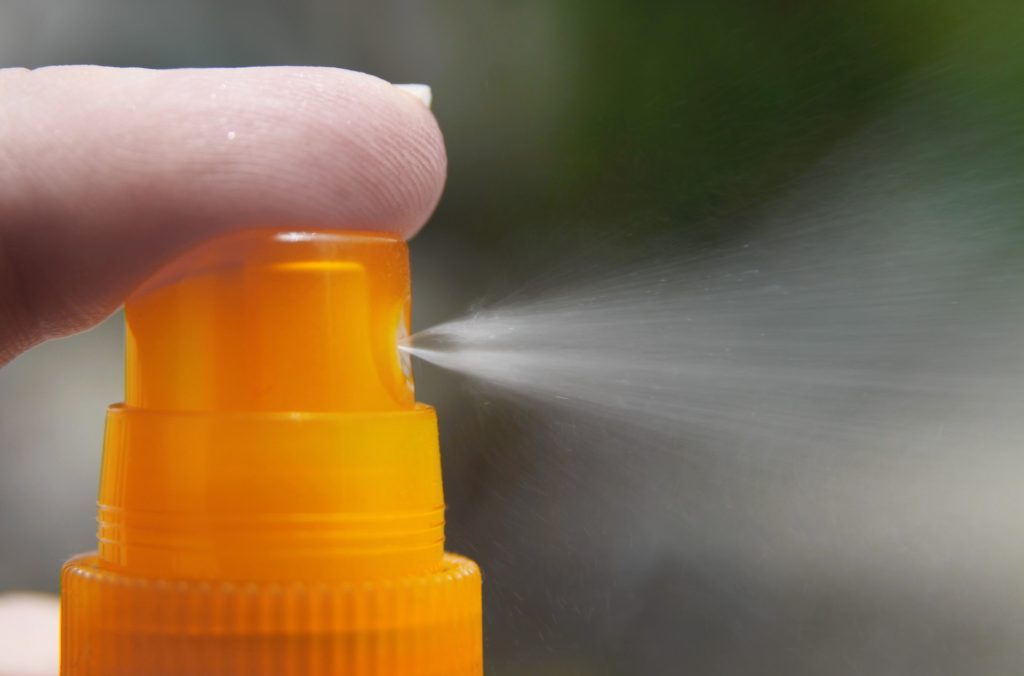Johnson & Johnson is recalling sunscreens from two of its popular brands over concerns of carcinogenic benzene contamination.
In a news release, J&J said it is exercising “an abundance of caution” by pulling its Neutrogena and Aveeno spray sunscreens from shelves.
The company said that while benzene is not an ingredient in any of its sunscreen products, it was detected during routine internal testing in some samples of its aerosol sunscreen finished products. J&J is investigating the cause of the issue, which is limited to the aerosol versions of its Neutrogena and Aveeno sunscreens.
The company also said that the benzene levels identified in its review are unlikely to cause harm, citing exposure modeling and the Environmental Protection Agency’s framework.
Nevertheless, J&J has advised customers to discontinue use and throw out any of the products affected by the benzene contamination, which include the Neutrogena spray brands Beach Defense, Cool Dry Sport, Invisible Daily and Ultra Sheer; and Aveeno Protect + Refresh.
Related: Google Launches AI-Based Dermatology Assist Tool
Benzene is a colorless flammable liquid that has a sweet odor. It is generated naturally by volcanoes and forest fires, and is found in crude oil. It is present in numerous products ranging from glue, plastics, paint strippers, cleaning products and pesticides, to tobacco smoke and gasoline.
Encountering benzene is therefore inevitable, J&J pointed out. In fact, benzene is one of the 20 most widely used chemicals in the US, serving as a starting material for making plastics, dyes, rubbers, drugs and pesticides. Therefore, levels should be monitored at different stages of production to avoid harmful benzene contamination.
Benzene can lead to cancer based on the level and extent of exposure. It can be toxic if swallowed, inhaled or touched.
J&J emphasized the importance of continuing to use other sunscreens, stating it is “critical to public health,” particularly with respect to rising melanoma rates around the world, the majority of which are caused by excessive sun exposure, the company said.
“The health and safety of the people who use our products is our top priority,” J&J said in its statement. In light of the benzene contamination, “While the use of these products would not be expected to cause adverse health consequences,” the company says it was the “right decision” to ask customers to stop using them.
Growing Contamination Issues
Finding products accidentally laced with cancer-causing agents, namely nitrosamines, has been a growing problem in recent years for pharma companies. Notable among these is the diabetes drug metformin, which underwent cross-company recalls in 2020 and 2021 after the US Food and Drug Administration (FDA) found traces of the potential carcinogen N-Nitrosodimethylamine in product samples. The health agency went after Apotex, Actavis, Amneal, Lupin and Marksans to pull their extended-release metformin products from shelves. Lupin and Marksans then followed with their own recalls in July and October 2020, respectively, along with Bayshore Pharmaceuticals, Sun Pharma and Nostrum Laboratories thereafter.
Blood pressure reducing medications of the “sartan” family were also recently flagged a couple of times for impurities. In 2019, lots of losartan potassium/hydrochlorothiazide were recalled after they were found to contain above acceptable levels of the suspected cancer-causing compound N-Nitroso-N-methyl-4-aminobutyric acid (NMBA). And last month, sanofi-aventis Canada Inc. recalled 12 lots of irbesartan, losartan and valsartan due to the presence of an azido impurity.
Nitrosamines also turned up in samples of Pfizer’s smoking cessation drug Chantix, causing the drug maker to pause its worldwide distribution.
The FDA set up a task force of chemists, toxicologists and lab staff that have been having regular meetings since 2018 to address the growing issue of nitrosamine contaminated drug products. Despite this, contamination issues still persist.
The FDA has been taking measures such as setting defined nitrosamine limits and pushing for better screening. Better detection techniques have led to uncovering even small amounts of contaminants in products, making it important to set those limit thresholds.
Drugs tainted with things like nitrosamines and benzene contamination may also be related to quality issues, as many drug companies have been outsourcing drug production, especially for cheaper generics, to countries that the FDA has found to have quality-control violations and sanitation issues.
There needs to be concerted and collaborative efforts on the part of both regulatory agencies and drugmakers to ensure that products meet set safety standards at every stage of manufacturing to reduce risks of contamination.












Join or login to leave a comment
JOIN LOGIN